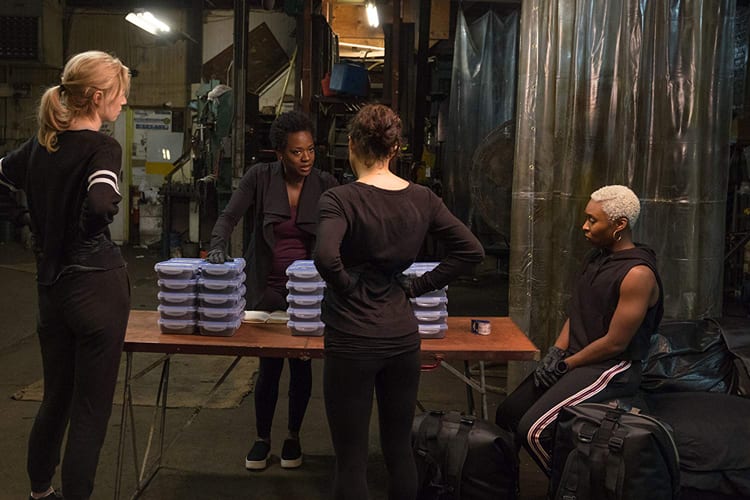“Widows” has the plot description of a summer blockbuster: a group of women plan to pull off a heist after their husbands die trying. Not the kind of movie you’d expect to see directed by Steve McQueen, the indie auteur behind gloomy ruminations like “Shame” and “12 Years a Slave”; and written by Gillian Flynn, the author behind pulpy mysteries like “Sharp Objects” and “Gone Girl”. It’s like the film industry pulled two names out of a hat and told them to adapt a British TV series from the 80s. You should be glad that the odd couple picked a crime drama like “Widows”.
From the outset, it’s clear that this isn’t a typical heist movie: “Widows” starts off slow, deliberately parsing out the details of a hostile political landscape in Chicago. Two-faced politician Jack Mulligan (Colin Farrell) is running for local office, and it looks like he has the election in the bag—his wealthy, racist father Tom holds major influence over the area. But Mulligan meets his match when he’s challenged by a grassroots campaign from Jamal Manning (Brian Tyree Henry), who’d be the better candidate if he and his brother (Daniel Kaluuya) weren’t actively crime kingpins.
What does any of this have to do with a heist gone wrong? As much as American politics has to do with money. After Veronica Rawlings (Viola Davis) finds out that her husband and his crew died mid-robbery, she ends up embroiled with both Mulligan and Manning, and in need of a lot of money. Not one to submit to opposition, Veronica seeks out the widows of the other dead criminals and puts together a team to finish what their husbands started.
The first half of “Widows” feels very much like a Steve McQueen movie. He has a lot of thoughtful points to make about race relations, patriarchal politics, and the gendered lenses through which we perceive power; and he develops these themes with subtle symbols peppered throughout the narrative. There are moments when “Widows” slips into blockbuster tendencies and explains itself outright, but for the most part, the movie’s buildup is intellectually scintillating.
The second half trades intellectual scintillation for thrills. Once the setup is out of the way, “Widows” switches gears and does what Gillian Flynn does best: the plot twists are shocking, the characters are riveting, and the heist is heart stopping. The story packs all the surprises of Flynn’s neo-noirs, keeping you guessing on the edge of your seat until an explosive conclusion.
Though “Widows” is expert entertainment on the whole, McQueen and Flynn’s styles don’t gel together fluidly, and it sometimes feels like two different movies fighting for the audience’s attention. The exciting heist movie ends up winning that battle, as McQueen and Flynn’s combined forces pull it off with zeal, but there’s still enough contemplative political commentary to mull over after the credits roll.
No matter what the movie’s doing, its cast is thoroughly phenomenal. Viola Davis is an acting force to be reckoned with. Michelle Rodriguez, Elizabeth Debicki, and Cynthia Erivo join her with a ferocity that cumulates in quite the performative power. Kaluuya’s supporting role is absolutely menacing—one to remember when the awards shows roll around. Backed by an electric score from Hans Zimmer, the cast turns the already exhilarating “Widows” into a tour de force of feminist dynamism.
★★★★ (4/5)




